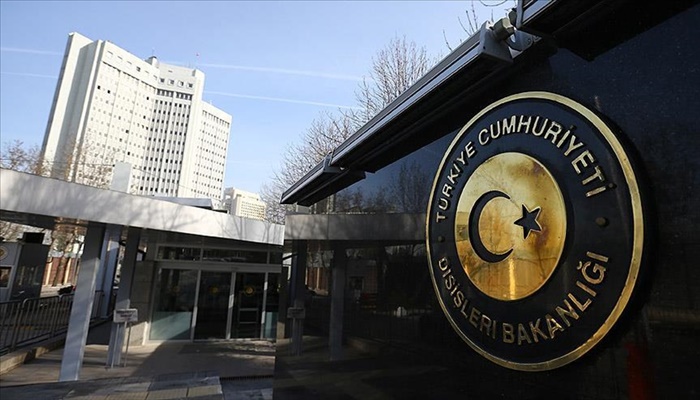Turkey’s Foreign Ministry has summoned Iran’s chargé d’affaires in Ankara amid a diplomatic dispute between the two countries, sparked by Turkey’s warning to Tehran against undermining stability in Syria, the state-run Anadolu news agency reported.
Foreign Ministry spokesperson Öncü Keçeli told reporters on Tuesday that the meeting was called to exchange views and address allegations made by some Iranian officials against Turkey.
The tensions follow comments made by Turkish Foreign Minister Hakan Fidan in a February interview with Al Jazeera in which he warned that Iran risked plunging the Middle East into “disorder.”
“If this policy continues, I don’t think it will be good,” Fidan said, accusing Iran of seeking to “create disorder” in the region.
On Monday Iran pushed back, with Assistant Foreign Minister Mahmoud Heydari warning against “false statements and unrealistic analysis that could lead to differences and tensions.”
Heydari made his remarks during what Tehran described as a meeting with Turkey’s Ambassador to Iran Hicabi Kırlangıç. Some Iranian media outlets reported that Kırlangıç had been summoned, but Iran’s Foreign Ministry did not characterize the meeting that way.
Also Monday, Iranian Foreign Ministry spokesperson Esmaeil Baqaei said Iran valued its “bilateral relations with Turkey very highly” but added that the government believed it was important to respond to Fidan’s remarks “clearly and decisively.”
Turkey defends its position
Keçeli said Turkish and Iranian officials regularly meet for consultations. “Today, we invited Iran’s chargé d’affaires to the ministry for an exchange of views,” he said while responding to a question about the summons.
“In recent times, we have observed that Iranian officials have been voicing their criticism of Turkey more frequently in public forums,” Keçeli added, noting that Turkey’s Foreign Ministry had previously conveyed a file to the Iranian side addressing these concerns.
Keçeli said Turkey prefers direct diplomatic engagement.
“We believe that foreign policy issues should not be used as material for domestic politics,” he said.
“In this regard, we prefer to communicate critical messages directly to the relevant parties. That is what we did today. We highly value our relations with Iran, and strengthening ties between Turkey and Iran is important to us.”
Iran leads the so-called “axis of resistance” against Israel, which includes Hamas in the Palestinian territories, Hezbollah in Lebanon, the Houthi rebels in Yemen and armed groups in Iraq.
Iran was also a key backer of Syrian President Bashar Assad before he was ousted from power on December 8 following an offensive by an Islamist-led rebel alliance with ties to Turkey.



